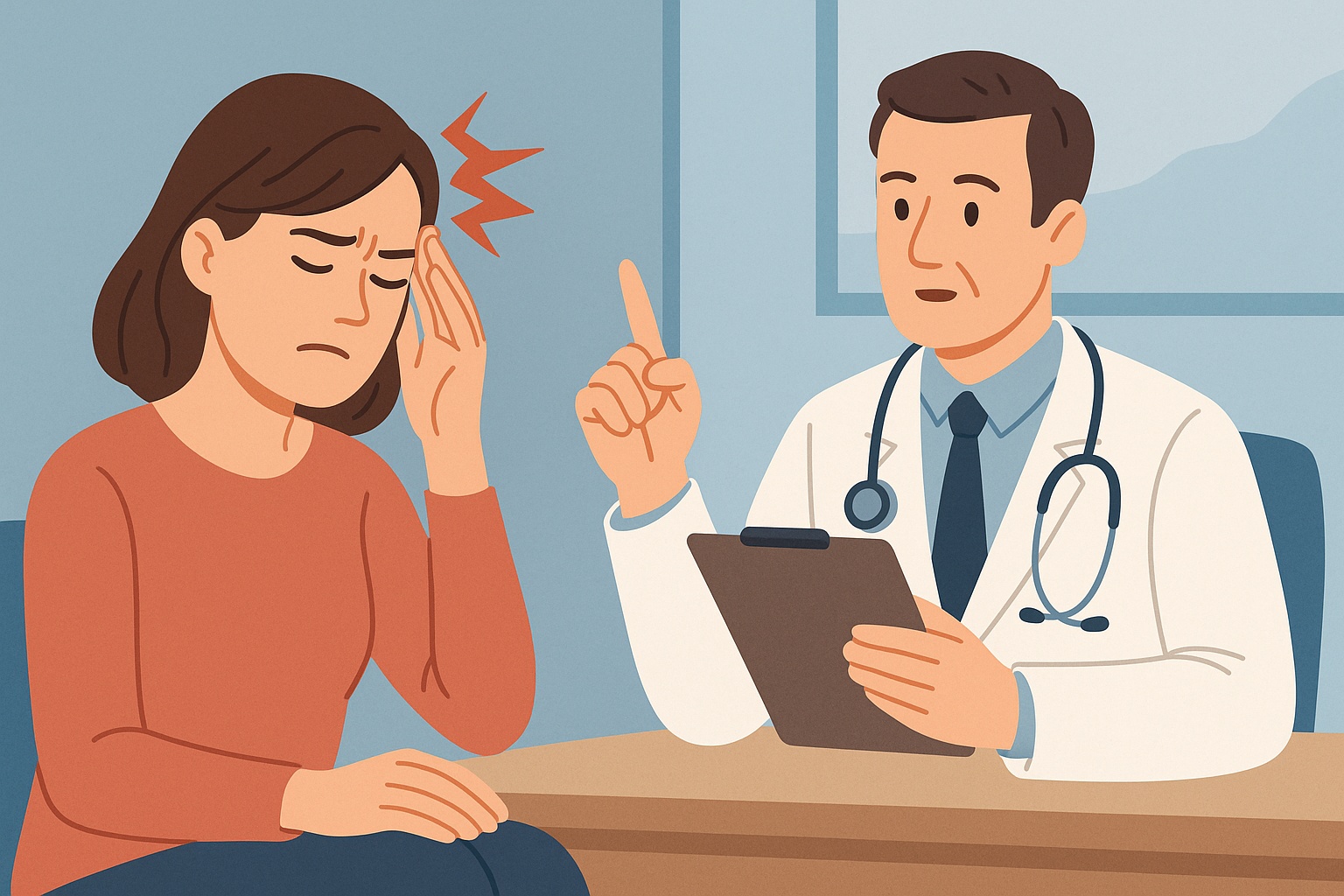When Should You See a Doctor for Migraines?
Doctor for migraines — it’s a search term that more Americans are typing into Google in 2025 than ever before. That’s because migraines are no longer seen as “just a bad headache.” They’re a complex neurological condition that can seriously impact your quality of life. If you’re unsure when it’s time to seek medical help, this guide will walk you through the signs, risks, and modern treatments that can help you reclaim control.
What Are Migraines?
Migraines are intense, recurring headaches often accompanied by nausea, sensitivity to light and sound, and visual disturbances called aura. They affect over 39 million people in the U.S. and can be triggered by stress, hormonal changes, poor sleep, certain foods, or even the weather. Unlike tension headaches, migraines can be disabling and last from four hours to several days.
When to See a Doctor for Migraines: Key Warning Signs
Many people treat migraines at home with over-the-counter medications, but certain symptoms signal it’s time to talk to a professional. You should see a doctor for migraines if you experience:
- Migraines more than once a week
- Severe pain that doesn’t improve with OTC medications
- Sudden onset of “the worst headache of your life”
- Changes in migraine patterns or frequency
- Neurological symptoms like weakness, slurred speech, or confusion
- Vision loss or blind spots that last longer than an hour
- Headaches after age 50 with no previous history
These could indicate a serious underlying condition or that your migraine management plan needs upgrading.
Types of Doctors Who Treat Migraines
Depending on the complexity of your symptoms, you may be referred to one of the following specialists:
- Primary care physician — A good first step for evaluation and initial treatment options.
- Neurologist — Specializes in brain and nerve disorders; ideal for chronic or complicated migraines.
- Headache specialist — A neurologist with advanced training in treating headaches and migraines specifically.
Some people also work with integrative medicine practitioners for lifestyle and nutrition-based approaches.
How a Doctor Diagnoses Migraines
Seeing a doctor for migraines typically involves a comprehensive evaluation. The process may include:
- A detailed headache history, including triggers and symptoms
- Neurological exams to assess reflexes, coordination, and cognition
- Imaging tests like MRI or CT scans if structural issues are suspected
- Blood tests to rule out infections or other causes
Your doctor may ask you to keep a migraine diary to track patterns and responses to treatment.
Effective Migraine Treatments Available in 2025
Thanks to medical advances, migraine care has improved significantly. A doctor for migraines might recommend a combination of the following:
- Acute medications — Triptans, NSAIDs, and gepants to relieve pain during an attack
- Preventive treatments — Daily medications, CGRP inhibitors, or Botox injections for chronic migraines
- Lifestyle modifications — Better sleep, hydration, consistent meals, and regular exercise
- Behavioral therapy — Cognitive Behavioral Therapy (CBT) and biofeedback to manage stress triggers
- Neuromodulation devices — FDA-approved wearable tech that interrupts migraine signals
Are Migraines Dangerous?
Migraines themselves are usually not life-threatening, but they can lead to complications if unmanaged. Chronic migraines are linked to depression, anxiety, sleep disorders, and reduced work productivity. In rare cases, migraines with aura increase the risk of stroke—especially in women under 45 who smoke or use hormonal contraceptives.
What to Expect at Your First Migraine Appointment
When you visit a doctor for migraines, be prepared to discuss:
- How long you’ve had migraines and how often they occur
- What your typical symptoms are
- Which treatments you’ve tried and what worked (or didn’t)
- Your family history of migraines or neurological conditions
Bring your migraine diary if you’ve kept one. It can speed up the diagnosis and help your doctor personalize your treatment plan.
FAQs About Seeing a Doctor for Migraines
- Should I go to the ER for a migraine?
Only if your headache is sudden and severe, you have neurological symptoms, or over-the-counter relief doesn’t help. - Can a regular doctor treat migraines?
Yes. Many primary care doctors successfully manage mild to moderate cases and refer you if needed. - Is it worth seeing a specialist?
If you’ve tried multiple treatments without relief, yes—specialists offer advanced options like nerve blocks or Botox.
Conclusion: Don’t Wait to See a Doctor for Migraines
If migraines are disrupting your life, it’s time to take them seriously. Consulting a doctor for migraines can uncover the root cause, reduce attack frequency, and give you tools for long-term control. Migraines are treatable—and with expert help, relief is closer than you think. Don’t wait. Your brain deserves the best care.







